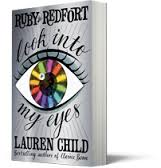
This weekend I have the luxury of being able to lose myself in book(s) which is a sign of HOLIDAY. I am curling up with a book awaiting the forecasted wind, thinking I need to batton down the guinea pig hutch. Fire is lit (it's not that cold but it's lovely to have) and next adventure awaits: 'The Lion of Sole Bay' by Julia Jones.
This is not only a treat, a wonderful experience, a luxury in terms of time BUT a necessity. I've grown up with books and I love them. I love the way you can escape into them, I love being absorbed in a story. Love the anticipation, the thrill of finding out what's going to happen next, of reading on, of being unaware of time passing outside in the real world. I see that as a gift, a gift we should also impart to our children-our future.
I've tweeted about the excellent Neil Gaiman article in the Guardian already. I agreed with it so strongly I feel I need to highlight some of his thoughts because STORYSHACK's line is 'Release your imagination' and THAT'S what he firmly advocates.http://www.theguardian.com/books/2013/oct/24/neil-gaiman-face-facts-need-fiction
I feel compelled to share parts of it with you too.
He discusses how the power of story can be the :
"gateway drug to reading. The drive to know what happens next. to want to turn the page, the need to keep going , eve if it's hard, because someone's in trouble and you have to know hot it's all going to end....that's a very real drive. And it forces you to learn new words, to think new thoughts, to keep going. To discover that reading per se is pleasurable."
He warns against choosing for children and steering choices, advocating, instead finding the stories 'they need to, and they bring themselves to stories' BECAUSE "We need our children to get on to the reading ladder: anything they enjoy reading will move them up, rung by rung into literacy." At this point I am jumping up and down and wanting to shout this from the treetops. (If you remember I'm by the fire but hopefully you get the picture!)
His point about escapism is so relevant to today, perhaps even more so as we seem to be expecting our children to grow up and become teenagers when they've left Reception. I certainly can't say it any better so..."Fiction can show you a different world, It can take your somewhere you've never been. Once you've visited other worlds, like those who ate fairy fruit you can never be entirely content with the world that you grew up in. Discontent is a good thing: discontented people can modify and improve their worlds, leave them better, leave them different
And while we're on the subject. I'd like to say a few words about escapism. I hear the term bandied about as if it's a bad thing. As if "escapist" fiction is a cheap opiate used by the muddled and the foolish and the deluded, and the only fiction that is worthy, for adults, or for children is mimetic fiction, mirroring the worst of the world the reader finds herself in.
If you were trapped in an impossible situation, in an unpleasant place and someone offered you a temporary escape, why wouldn't you take it? And escapist fiction is just that: fiction that opens a door, shows the sunlight outside, give you a place to go where you are in control, are with people you want to be with' and more importantly , during your escape, books can also give your knowledge about your world and your predicament, give you weapons, give you armour, real things you can take back into your prison. Skills and knowledge and tools you can use to escape for real."
The reason I would love everybody to read this is because it's about everything reading brings us and nothing about data, drive and improvement. It's everything about what we SHOULD be doing because reading is wonderful nothing about reading because it'll improve our scores and results and our league table status. It's what we should be doing and it's not some arty farty creative type wanting everyone to daydream and not learn. If you think it is then woe betide you because, as he says (of imagination):
"But the truth is, individuals change their world over and over, individuals make the future, and they do it by imagining that things can be different."


 RSS Feed
RSS Feed

